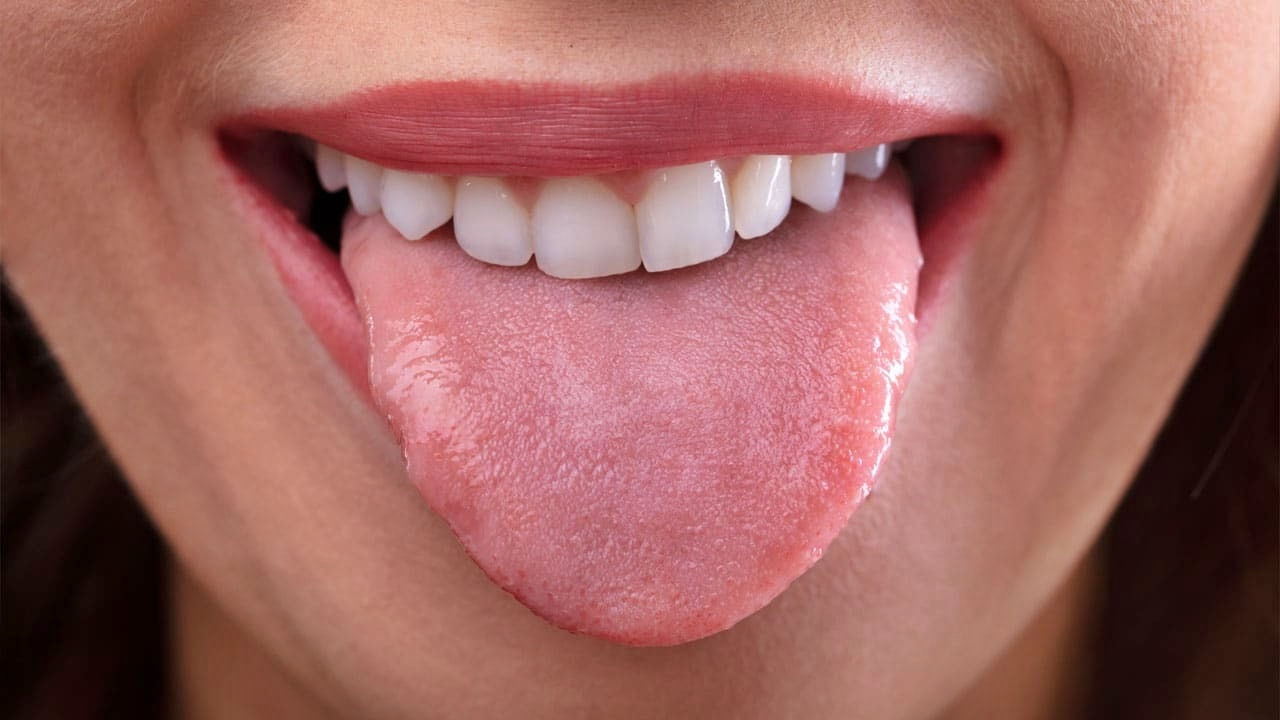

Featured
What Is Good For Prostate Health
Published: September 8, 2023
Discover featured products that are good for prostate health and learn how to improve your overall well-being.
Introduction
The prostate is a small gland located below the bladder in men. While it may seem insignificant, this gland plays a vital role in male reproductive health. Prostate issues, such as inflammation, enlargement, or cancer, can significantly affect a man’s quality of life. Therefore, it is crucial to understand how to maintain good prostate health and prevent potential problems.
As men age, the risk of developing prostate issues increases. Factors such as family history, ethnicity, and lifestyle can also contribute to the likelihood of prostate health problems. While some of these risk factors cannot be controlled, taking proactive steps towards a healthy lifestyle can help reduce the chances of developing prostate issues.
In addition to lifestyle choices, diet plays a significant role in maintaining prostate health. Certain foods and nutrients have shown to have a positive impact on the prostate, while others may increase the risk of problems. Furthermore, adopting specific lifestyle habits and getting regular screenings can also contribute to early detection and effective management of prostate health issues.
In this article, we will explore various aspects of prostate health, including the role of diet, recommended foods, supplements, lifestyle habits, and common prostate problems. By understanding and implementing these strategies, men can empower themselves to take control of their prostate health and lead a happy and fulfilling life.
Risk Factors for Prostate Health Issues
Prostate health issues can affect men of all ages, but the risk tends to increase with age. There are several factors that contribute to the development of prostate problems, and understanding these risk factors can help individuals take preventive measures to maintain their prostate health. Here are some of the key risk factors:
- Age: As mentioned, age is a significant risk factor for prostate problems. The risk of developing prostate cancer, for example, increases after the age of 50. Therefore, it is important for men in this age group to be vigilant about their prostate health and get regular screenings.
- Family History: Having a family history of prostate problems, particularly prostate cancer, can increase the risk. If a close relative, such as a father or brother, has had prostate cancer, the risk of developing the condition is higher. In such cases, it is advisable to start regular screenings earlier and maintain a proactive approach to prostate health.
- Ethnicity: Ethnicity plays a role in prostate health as well. African American men have a higher risk of developing prostate cancer compared to other ethnic groups. It is important for individuals from high-risk ethnicities to be aware of this and take appropriate preventive measures.
- Lifestyle Factors: Certain lifestyle choices can impact prostate health. For instance, smoking has been linked to an increased risk of developing aggressive prostate cancer. Additionally, lack of physical activity and a sedentary lifestyle can contribute to prostate problems. Adopting a healthy lifestyle that includes regular exercise can help mitigate these risks.
While some risk factors cannot be controlled, such as family history and ethnicity, it is essential to focus on those that can be modified. By making positive lifestyle choices, individuals can significantly reduce their risk of developing prostate problems and improve their overall well-being.
The Role of Diet in Maintaining Prostate Health
When it comes to maintaining prostate health, diet plays a crucial role. Research suggests that specific nutrients and foods have a significant impact on reducing the risk of prostate issues, including inflammation, enlargement, and cancer. Incorporating a well-balanced and prostate-friendly diet can help support optimal prostate health. Here are some key points to consider:
1. Antioxidants and Phytochemicals: Antioxidants and phytochemicals are potent substances found in fruits, vegetables, and plant-based foods. These compounds have powerful anti-inflammatory and cancer-fighting properties. Including a variety of colorful fruits and vegetables in your diet can provide a rich source of antioxidants, such as vitamin C, vitamin E, and beta-carotene, which may help protect against prostate problems.
2. Healthy Fats: Not all fats are created equal, and choosing the right types of fats is essential for prostate health. Healthy fats, such as omega-3 fatty acids found in fatty fish like salmon, sardines, and mackerel, have anti-inflammatory properties and may help reduce the risk of prostate issues. Incorporating other sources of healthy fats like avocados, nuts, and olive oil can also be beneficial.
3. Plant-Based Protein: Reducing the consumption of red and processed meats is recommended for those looking to maintain prostate health. Instead, opt for plant-based sources of protein, such as beans, lentils, tofu, and tempeh. These plant-based proteins are low in saturated fats and high in fiber, which can promote overall health and reduce the risk of prostate problems.
4. Cruciferous Vegetables: Cruciferous vegetables such as broccoli, cauliflower, Brussels sprouts, and cabbage contain compounds called glucosinolates. These compounds are known to have anti-cancer properties and may help protect against prostate cancer. Including these vegetables in your diet can have a positive impact on prostate health.
5. Adequate Hydration: Staying hydrated is crucial for overall health, including prostate health. Drinking enough water helps flush out toxins from the body and supports proper functioning of the prostate gland. Aim to drink at least 8 cups of water per day to maintain proper hydration.
6. Portion Control: While the focus is on incorporating prostate-friendly foods, it is equally important to practice portion control. Overeating can lead to weight gain, which is linked to an increased risk of prostate problems. Maintaining a healthy weight through portion control can help reduce the risk of prostate issues.
By adopting a diet that includes a variety of prostate-friendly foods and avoiding or limiting foods that may be detrimental to prostate health, individuals can support their prostate and overall well-being. It is important to remember that diet alone is not a cure-all, and a holistic approach combining a healthy lifestyle, regular exercise, and regular screenings is key to maintaining optimal prostate health.
Recommended Foods for Prostate Health
When it comes to maintaining prostate health, certain foods have been shown to have specific benefits. Including these foods in your diet can help support optimal prostate function and reduce the risk of prostate problems. Here are some recommended foods for prostate health:
- Tomatoes: Tomatoes are rich in lycopene, a powerful antioxidant that has been associated with a lower risk of prostate cancer. Cooked tomatoes, such as in sauces and soups, are even more beneficial as the cooking process increases the bioavailability of lycopene.
- Cruciferous Vegetables: Cruciferous vegetables like broccoli, cauliflower, Brussels sprouts, and cabbage are rich in vitamins, minerals, and fiber. They also contain compounds that have been shown to have anti-cancer properties. Including these vegetables in your diet can have a positive impact on prostate health.
- Green Tea: Green tea is packed with antioxidants and has been extensively studied for its potential anti-cancer properties. Regular consumption of green tea has been associated with a reduced risk of prostate cancer. Enjoying a cup of green tea daily can be a beneficial addition to your routine.
- Berries: Berries such as blueberries, strawberries, and raspberries are not only delicious but also rich in antioxidants. They contain vitamins, minerals, and fiber that help support overall health, including prostate health. Add a handful of berries to your breakfast or snack for a prostate-friendly boost.
- Fatty Fish: Fatty fish like salmon, trout, and sardines are excellent sources of omega-3 fatty acids. These healthy fats have anti-inflammatory properties and may help reduce the risk of prostate problems. Aim to include fatty fish in your diet at least twice a week.
- Nuts: Nuts such as almonds, walnuts, and Brazil nuts are nutrient-dense and contain healthy fats, fiber, and antioxidants. They can provide a satisfying snack option while also supporting prostate health. However, be mindful of portion sizes as nuts are calorie-dense.
- Soy Products: Soy products like tofu, tempeh, and edamame contain plant compounds called phytoestrogens. These compounds have been associated with a lower risk of prostate cancer. Including moderate amounts of soy products in your diet can be beneficial.
Remember, incorporating these foods into a well-balanced diet is important. It is always best to focus on a variety of nutrient-dense foods rather than relying on one specific food for all your prostate health needs. Additionally, it is advisable to consult with a healthcare professional or a registered dietitian to help create a personalized diet plan that suits your individual needs and health condition.
Foods to Avoid for a Healthy Prostate
While it’s important to focus on incorporating prostate-friendly foods into your diet, it’s equally crucial to be aware of certain foods that may have a negative impact on prostate health. By minimizing or avoiding these foods, you can help support a healthy prostate. Here are some foods to avoid:
- Red and Processed Meats: Regular consumption of red and processed meats has been associated with an increased risk of prostate problems, including prostate cancer. These meats are often high in saturated fats, which can contribute to inflammation and the development of chronic diseases. Instead, opt for lean proteins such as poultry, fish, and plant-based alternatives.
- High-Fat Dairy Products: High-fat dairy products like whole milk, butter, and full-fat cheese are rich in saturated fats. Studies have suggested that a high intake of these fatty dairy products may increase the risk of prostate issues. Consider switching to low-fat or non-dairy alternatives, such as almond milk or Greek yogurt.
- Sugary Foods and Beverages: Excessive consumption of sugary foods and beverages can lead to weight gain and increase the risk of prostate problems. These foods can also cause blood sugar spikes and inflammation. Limit your intake of sugary treats, soft drinks, and processed snacks.
- Salt and Sodium: High-sodium diets have been associated with an increased risk of prostate problems. Excess sodium can lead to fluid retention and increased blood pressure, which can negatively affect prostate health. Be mindful of your salt intake and try to limit processed and packaged foods, which are often high in sodium.
- Refined Grains: Refined grains, such as white bread, white rice, and pasta made from refined flour, have been stripped of their nutritional value and fiber content. These foods can cause blood sugar spikes and contribute to weight gain. Instead, opt for whole grains like brown rice, quinoa, and whole wheat products.
- Trans Fats: Trans fats are artificially created fats found in many processed foods, fried foods, and baked goods. These fats have been linked to inflammation and various health problems, including prostate issues. Read food labels carefully and avoid products that contain partially hydrogenated oils.
While it may be challenging to eliminate these foods altogether, making conscious choices to minimize their consumption can have a positive impact on prostate health. It’s important to focus on a balanced diet that includes nutrient-dense foods, ensuring that you meet your body’s nutritional needs while proactively supporting your prostate.
Supplements for Prostate Health
In addition to a healthy diet, certain supplements can provide additional support for prostate health. While it’s important to consult with a healthcare professional before starting any new supplements, here are some commonly recommended ones:
- Saw Palmetto: Saw palmetto is a popular herbal supplement that has been traditionally used to support prostate health. It may help reduce the symptoms of an enlarged prostate, such as frequent urination and difficulty emptying the bladder.
- Beta-Sitosterol: Beta-sitosterol is a natural plant compound found in fruits, vegetables, and nuts. It has been widely studied for its potential benefits in supporting prostate health and reducing the symptoms of an enlarged prostate.
- Zinc: Zinc is an essential mineral known for its role in supporting prostate health. It plays a crucial role in maintaining proper prostate function and can be obtained from dietary sources or through supplementation.
- Vitamin D: Vitamin D deficiency has been associated with an increased risk of prostate problems, including prostate cancer. Ensuring adequate vitamin D levels through proper sun exposure or supplementation can be beneficial for overall prostate health.
- Lycopene: Lycopene, a powerful antioxidant found in tomatoes and other red fruits, may have protective effects against prostate cancer. While it can be obtained through dietary sources, lycopene supplements are also available as an option.
- Omega-3 Fatty Acids: Omega-3 fatty acids, commonly found in fish oil supplements, have anti-inflammatory properties and may help reduce the risk of prostate problems. They are often recommended for overall health and can complement a healthy diet.
Remember, supplements should not replace a balanced diet. They should be used as a complement to a healthy lifestyle and diet. It’s important to discuss any supplements with a healthcare professional before adding them to your routine, especially if you have any underlying health conditions or are taking medications that may interact with the supplements.
Ultimately, the best approach to supporting prostate health is a combination of a nutritious diet, regular exercise, adequate hydration, stress management, and regular screenings. Taking a proactive approach to your well-being can help maintain optimal prostate health and overall vitality.
Lifestyle Habits for a Healthy Prostate
Adopting healthy lifestyle habits is essential for maintaining a healthy prostate. While diet and supplementation are important components, incorporating the following habits into your daily routine can further support prostate health:
- Regular Exercise: Engaging in regular physical activity is not only beneficial for overall health but also for prostate health. Exercise helps to maintain a healthy weight, reduce inflammation, and improve circulation. Aim for at least 150 minutes of moderate-intensity exercise or 75 minutes of vigorous exercise per week.
- Manage Stress: Chronic stress has been linked to various health problems, including prostate issues. Find healthy ways to manage stress, such as practicing relaxation techniques like deep breathing, meditation, or engaging in hobbies that help you unwind.
- Avoid Tobacco Use: Smoking has been associated with an increased risk of prostate problems, including prostate cancer. Quitting smoking or avoiding exposure to secondhand smoke can significantly improve overall health, including prostate health.
- Maintain a Healthy Weight: Excess weight, especially around the waist, has been linked to an increased risk of prostate issues. Adopting a healthy diet and engaging in regular physical activity can help maintain a healthy weight and reduce the risk of prostate problems.
- Stay Hydrated: Drinking an adequate amount of water is essential for overall health, including prostate health. Staying hydrated helps to flush out toxins from the body and supports proper functioning of the prostate gland.
- Get Regular Screenings: Regular prostate screenings, such as prostate-specific antigen (PSA) blood tests and digital rectal exams, are vital for early detection of any potential prostate issues. Discuss with your healthcare professional when to start screenings and how often they should be conducted based on your age and risk factors.
- Limit Alcohol Consumption: Excessive alcohol consumption has been associated with an increased risk of prostate problems. Moderation is key – limit your alcohol intake to no more than one drink per day for men.
Adopting these lifestyle habits not only promotes prostate health but also enhances overall well-being. Integrating them into your daily routine can reduce the risk of developing prostate problems and allow you to maintain an active and fulfilling life.
Screening and Early Detection of Prostate Issues
Screening and early detection play a crucial role in maintaining prostate health. Detecting potential issues in their early stages can significantly improve treatment outcomes and overall prognosis. Here are some key points to consider regarding screening and early detection of prostate issues:
Prostate-Specific Antigen (PSA) Test: The PSA blood test is a common screening tool used to measure the levels of prostate-specific antigen in the blood. Elevated PSA levels can indicate the presence of prostate problems, including inflammation, infection, or even prostate cancer. This test is often done in combination with a digital rectal exam.
Digital Rectal Exam (DRE): During a digital rectal exam, a healthcare professional inserts a gloved finger into the rectum to feel for any abnormalities in the prostate gland. Although it may be uncomfortable, it is a quick and important screening method to detect potential issues, such as enlargement or tumors.
Screening Guidelines: The guidelines for prostate screening may vary depending on factors such as age, family history, and individual risk factors. It is recommended to discuss with a healthcare professional to determine the appropriate timing and frequency of screenings for your specific situation. Typically, screenings may start around the age of 50 for most men, while those at higher risk may initiate screenings earlier.
Benefits and Limitations: Early detection of prostate issues through screenings can help identify potential problems before symptoms manifest, allowing for timely intervention and treatment. However, screenings may have limitations, including false-positive or false-negative results, which can sometimes lead to unnecessary procedures or missed diagnoses. It is important to have a thorough discussion with your healthcare professional about the benefits and limitations of screening tests.
Regular Monitoring: Regular monitoring of prostate health, especially for those at higher risk or with a family history of prostate problems, is crucial. This includes staying informed about any potential symptoms, changes in urinary or sexual function, or other signs that may indicate a need for further assessment.
Open Communication: It is important to have open and honest communication with your healthcare professional about any concerns or questions you may have regarding prostate health. They can provide guidance on screenings, educate you about potential risks, and address any other issues specific to your individual situation.
Remember, early detection of prostate issues through regular screenings and proactive monitoring can significantly improve treatment outcomes. By staying informed and working closely with your healthcare professional, you can take control of your prostate health and ensure timely intervention if needed.
Common Prostate Health Problems
The prostate gland is susceptible to various health problems as men age. Understanding these common prostate issues can help individuals recognize potential symptoms, seek early intervention, and take appropriate measures for their prostate health. Here are some of the most common prostate health problems:
1. Benign Prostatic Hyperplasia (BPH): BPH is a non-cancerous condition characterized by the enlargement of the prostate gland. As men age, the prostate can grow and cause urinary symptoms such as frequent urination, weak urine flow, and difficulty emptying the bladder. While BPH is not cancerous, it can affect the quality of life and require medical intervention.
2. Prostatitis: Prostatitis is the inflammation of the prostate gland, often caused by bacterial infection. It can result in symptoms such as pain or discomfort in the pelvic area, frequent urination, and pain during urination. Treatment typically involves antibiotics and other measures to alleviate symptoms and resolve the underlying infection.
3. Prostate Cancer: Prostate cancer is one of the most common cancers affecting men, particularly those over the age of 50. It occurs when abnormal cells in the prostate gland multiply and form tumors. Prostate cancer may not cause noticeable symptoms in its early stages, highlighting the importance of regular screenings. As the disease progresses, symptoms such as difficulty urinating, blood in the urine or semen, and pain in the pelvic area may occur.
4. Prostate Infection: Prostate infections can occur either from bacterial infections (acute bacterial prostatitis) or inflammation without an identified cause (chronic bacterial prostatitis or chronic prostatitis/chronic pelvic pain syndrome). Symptoms can include pain in the groin or pelvic area, urinary problems, and discomfort during ejaculation. Treatment may involve antibiotics and other therapies to relieve symptoms and resolve the infection.
5. Prostate Stones: Prostate stones are small calcifications that can form in the prostate gland. While they are usually harmless, they can cause symptoms similar to those of prostatitis or BPH, such as pain during urination and difficulty emptying the bladder. Treatment may involve medications or procedures to alleviate symptoms and manage any underlying conditions.
If you experience any symptoms or have concerns about your prostate health, it is crucial to consult with a healthcare professional. They can provide an accurate diagnosis, determine the appropriate course of action, and recommend lifestyle changes or treatment options specific to your condition.
Treatment Options for Prostate Health Issues
Prostate health issues can vary in severity and treatment options depend on the specific condition and individual circumstances. When it comes to addressing prostate problems, healthcare professionals consider various factors, including the severity of symptoms, the presence of cancer, and the overall health of the patient. Here are some common treatment options for prostate health issues:
1. Medications: Medications are often the first line of treatment for prostate conditions such as benign prostatic hyperplasia (BPH) and prostatitis. Alpha-blockers help relax the muscles in the prostate and the bladder neck, improving urine flow and reducing symptoms. 5-alpha-reductase inhibitors can help shrink an enlarged prostate gland. Antibiotics are prescribed to treat bacterial infections in the prostate.
2. Minimally Invasive Procedures: Minimally invasive procedures are commonly used for managing BPH symptoms that are not effectively controlled with medication. Transurethral resection of the prostate (TURP), laser ablation, and prostate artery embolization (PAE) are some of the procedures used to reduce prostate gland size, relieve urinary symptoms, and improve urine flow.
3. Radiation Therapy: Radiation therapy is a treatment option for prostate cancer. It uses high-energy X-rays or other targeted radiation sources to destroy cancer cells or inhibit their growth. Radiation therapy can be used as a primary treatment or in combination with other treatments for localized or advanced prostate cancer.
4. Surgery: Surgery may be recommended for various prostate conditions. For prostate cancer, surgical options include radical prostatectomy, which involves removal of the prostate gland. For BPH, the surgical procedure called transurethral resection of the prostate (TURP) removes a portion of the prostate to relieve urinary symptoms.
5. Lifestyle Modifications: In conjunction with medical treatments, lifestyle modifications can play a significant role in managing prostate health issues. These can include dietary changes, regular exercise, stress management, and maintaining a healthy weight. These modifications can help alleviate symptoms, reduce the risk of complications, and improve overall well-being.
6. Active Surveillance: For slow-growing prostate cancer that is localized and low-risk, active surveillance may be an option. This involves regular monitoring of the cancer with repeat biopsies, PSA tests, and imaging studies to ensure that the cancer does not progress. If the cancer shows signs of progression, active treatment may be initiated.
It is important to note that the appropriate treatment option will depend on various factors and should be determined in consultation with a healthcare professional. They will consider individual circumstances and provide recommendations based on the specific prostate health issue, overall health, and personal preferences.
Conclusion
Taking care of prostate health is essential for men of all ages. By understanding the risk factors, adopting a prostate-friendly diet, incorporating lifestyle habits, and undergoing regular screenings, men can proactively maintain optimal prostate health. Recognizing common prostate problems and seeking early detection allow for timely intervention and better treatment outcomes.
A balanced diet that includes antioxidants, phytochemicals, healthy fats, and crucial nutrients can support overall prostate health. Recommending foods like tomatoes, cruciferous vegetables, green tea, berries, fatty fish, and nuts can provide additional benefits. Conversely, reducing the consumption of red and processed meats, high-fat dairy products, sugary foods, and excess sodium can mitigate risks.
Supplements may be considered, such as saw palmetto, beta-sitosterol, zinc, vitamin D, lycopene, and omega-3 fatty acids, as part of a comprehensive approach to prostate health. However, it is essential to consult with a healthcare professional before adding any supplements to your routine.
Implementing lifestyle habits like regular exercise, stress management, avoiding tobacco use, maintaining a healthy weight, staying hydrated, and getting regular screenings are key to supporting prostate health. These habits allow for early detection of potential issues and pave the way for more effective interventions or treatments, if necessary.
In conclusion, adopting a proactive approach to prostate health empowers men to take control of their well-being. By incorporating healthy habits, making informed choices about diet and supplements, and staying vigilant about regular screenings, individuals can optimize their prostate health and enjoy a higher quality of life. Remember, maintaining a healthy prostate is not a one-time effort, but an ongoing commitment to prioritize overall well-being.









